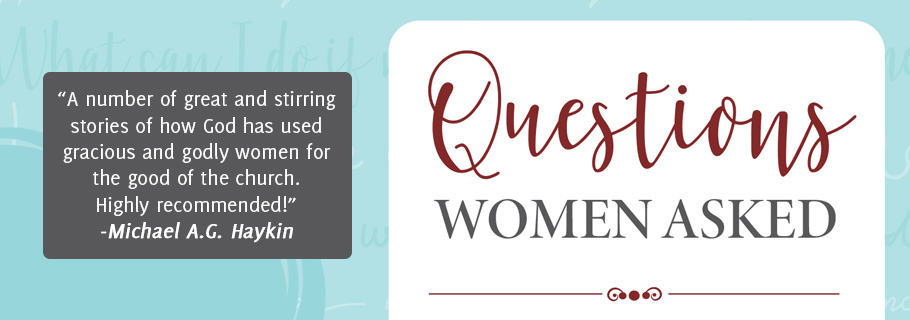This week’s blog is sponsored by Reformation Heritage Books and written by Simonetta Carr—who encourages you to keep asking questions. Be sure to take a look at her new book Questions Women Asked.
Unending Questions
Kids ask a lot of questions. According to a 2013 British study by Littlewoods.com, girls do so more than boys, asking as many as 390 questions per day based on a thousand participants. Eighty-two percent of these questions are addressed to mothers. A quarter of the children said they would go first to their mother because their father would say, “Ask your mum.”
If this study is correct, mothers start their lives asking questions and are still dealing with a huge number of questions when many other adults have grown out of the habit of frequent asking.
Inquisitive Women
While most of the women in my book, Questions Women Asked, were not seen as theologians, their questions helped more famous theologians carefully examine their own answers. In the fourth century, Marcella of Rome approached Jerome (translator of the Latin Vulgate) with her numerous questions, insisting “in season and out of season” despite his initial rejection.
She was not the only woman to approach Jerome with questions. Besides his immediate circle of followers, he received letters from other countries, including Gaul (today’s France), where Hedibia and Algasia sent him, each separately, lists of specific questions on the exegesis of Biblical passages.
With her questions, sixteenth-century Elizabeth Aske Bowes forced John Knox to face queries he had tried to ignore in his own soul. It was only upon her insistence that he addressed those uneasy subjects, producing some of the most comforting letters in church history.
Renée of France did the same with John Calvin by asking, “Should we pray for God’s enemies?” Dissatisfied with his quick reply to her troubling question, she insisted that he take a closer look at not only the issue, in itself, but at the unseemly responses that the typical, generic answer had caused in some radical Huguenots.
Careful Answers
Naturally, not all questions can be fully answered in this life. The Bible tells us there are “secret things” which “belong unto the Lord our God” (Deut. 29:29). When a deeply distressed friend asked Anne Ross Cousin how Christians could sing in Heaven if their loved ones are missing, Anne could only remind her of John 13:7, where Jesus said: “What I do thou knowest not now, but thou shalt know hereafter.”
Still Exploring
When Reformation Heritage Books started a Facebook page for a discussion of Questions Women Asked, I was immediately impressed at the questions and insights of those who posted. One question seems to pull another. It’s an inspiring sight because we all help each other see things from different perspectives, as iron sharpens iron. And we learn not only from our present friends and acquaintances but from people of other times and other cultures, like the women in Questions Women Asked.
The more we ask, the more we learn. The more we admit we still only know in part, the more we realize there is a whole “sea of wonders” to explore, as the 18th-century poetess Ann Griffiths wrote. She aspired to spend her life in it – a wish that God is always more than willing to grant.










